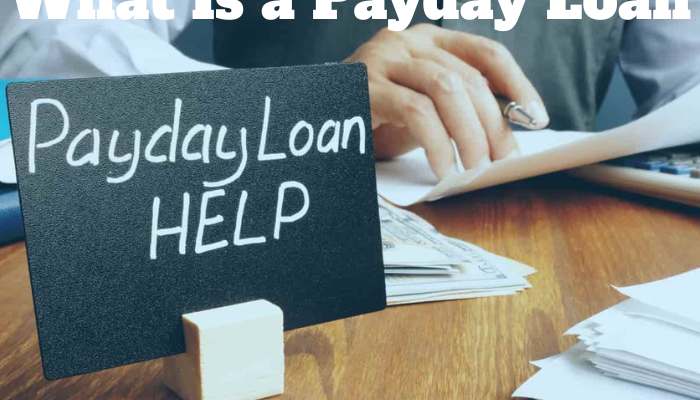When you’re short on cash, a payday loan can seem like a great solution. But before you take out one of these loans, make sure you understand all of the risks involved. Here are four things to keep in mind before applying for a payday loan.
What Is a Payday Loan
A payday loan is a short-term, high-interest loan designed to be used as a last resort when other sources of funding are not available. The loans are typically for small amounts of money, and the borrower agrees to repay the loan on their next payday. Payday loans are controversial because of the high interest rates and fees associated with them. Critics argue that payday loans trap borrowers in a cycle of debt, as they are often unable to repay the loan on time and are forced to take out another loan to cover the original debt. Proponents of payday loans argue that they provide a necessary service for people who have no other source of funding and that the high interest rates reflect the risk involved in lending to people with bad credit.
What To Expect When You Take Out a Payday Loan
A payday loan is a short-term, high-interest loan designed to be used as a last resort when you need cash fast. The typical term is two weeks, with an average APR of 400%. That means that if you take out a $100 loan, you’ll owe $140 back after two weeks. Payday loans are easy to qualify for and you can typically get the money the same day you apply. However, they’re also notoriously difficult to pay back, and many people end up renewing their loans multiple times before finally being able to pay them off. If you’re considering taking out a payday loan, be sure to understand the risks involved and make sure you can afford the high interest payments.
Getting Money From a Payday Lender
A payday loan is a type of short-term borrowing where a lender will extend high interest credit based on a borrower’s income and credit profile. Payday loans are designed to be repaid in full on the borrower’s next payday. However, if the borrower is unable to repay the loan in full, the lender may allow the loan to roll over into a new loan with an additional fee. Payday loans are typically for small amounts of money, typically $500 or less. borrowers may also be charged an origination fee for taking out the loan.
Payday loans are considered to be very high risk because they are not secured by any collateral and have extremely high interest rates. For example, a typical two-week payday loan has an annual percentage rate (APR) of more than 400%. This means that if you were to borrow $500 for two weeks, you would need to pay back $625 plus any fees and interest charges. Because of the high costs associated with payday loans, it is important to only use them as a last resort when you absolutely need cash and have no other options. If you are considering taking out a payday loan, make sure you understand all of the terms and conditions first and shop around for the best deal. There are many alternative lenders that offer more affordable options for short-term borrowing.
How Much Payday Loans Cost
A payday loan is a type of short-term borrowing where a lender will extend high interest credit based on a borrower’s income and credit profile. Payday loans are typically for small amounts, and many states set maximums for the amount of fees and interest that can be charged. In general, the cost of a payday loan is quite high. For example, a $100 loan might have a fee of $15, which would equate to an annual percentage rate (APR) of almost 400%. In contrast, credit cards typically have APRs ranging from 12% to 30%. As such, it’s important for borrowers to carefully consider the costs and benefits of taking out a payday loan before making a decision.











Comments